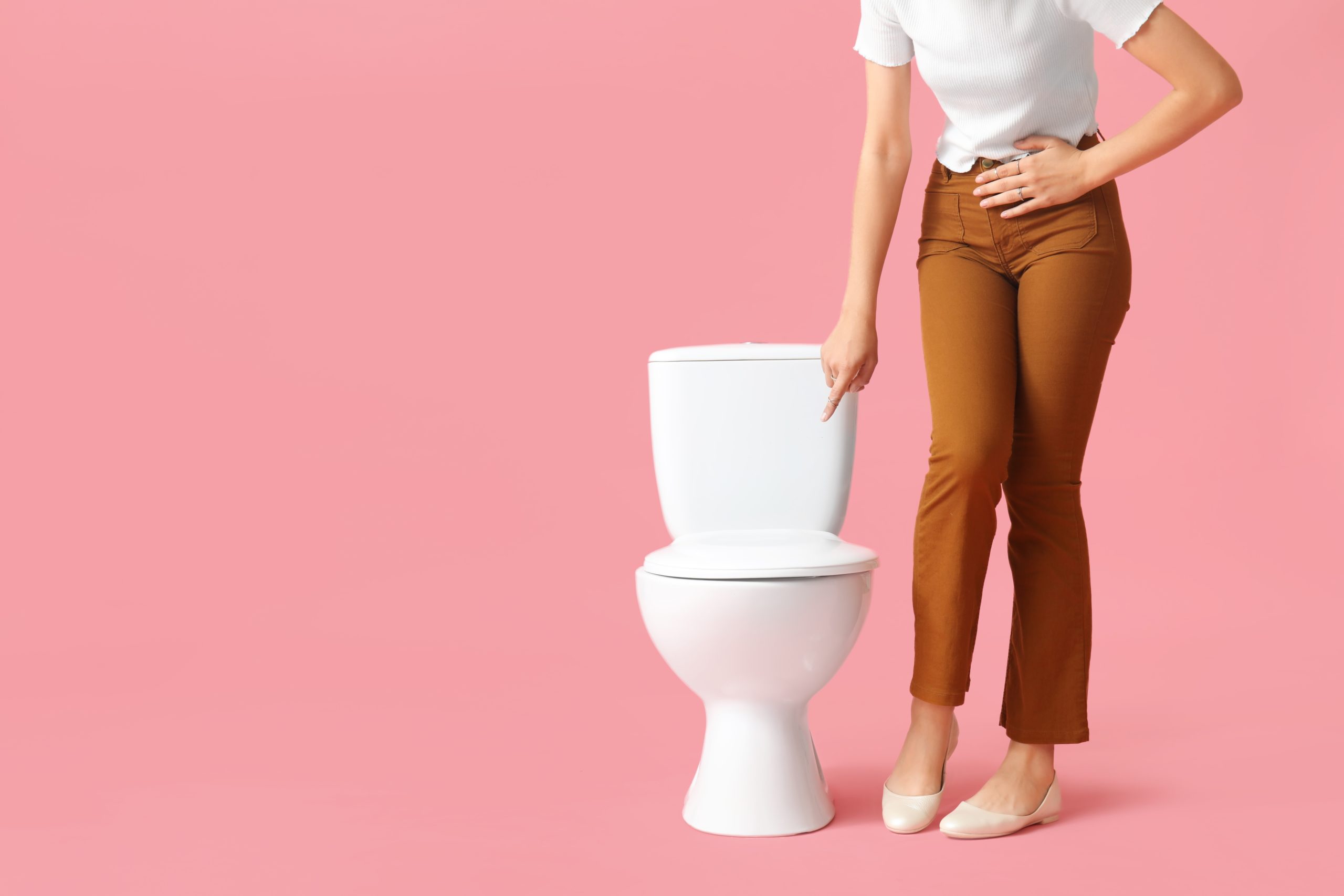
7 Signs You Should Talk to a Health Care Provider About Urinary Incontinence
If you always feel like you need to pee—or you can’t always quite make it to the bathroom before urine starts trickling out—or you experience any leakage whenever you let out a hard laugh, cough, or sneeze, you may be dealing with a loss of bladder control, also known as urinary incontinence.
This is very common, and can happen at any age, but the likelihood of incontinence increases with age. Your pelvic floor is the group of muscles and connective tissues that support the bladder, urethra, uterus, and bowels, and it naturally weakens as you get older, increasing your chance of leakage.
As we get older, we experience more life events that can add stress to these pelvic floor muscles. These include things such as pregnancy, childbirth, certain health conditions, working jobs that require significant heavy lifting, menopause, and many other triggers.
Stress urinary incontinence (or stress incontinence) and urge incontinence (also known as overactive bladder) are the two main types of urinary incontinence. Stress incontinence is leakage that occurs due to a sudden force that puts pressure on the bladder and urethra, such as sneezing, coughing, laughing, lifting, straining, exercising, and sometimes intercourse. Urge incontinence occurs when you feel a sudden urge to pee and leak before you can get to a bathroom. There are other types of urinary incontinence as well, but these types are less common or rare.
Living with urinary incontinence can cause a lot of stress and worry, which can understandably take a toll on your day-to-day life. In general, incontinence is something that people typically do not like to talk about, but reaching out to a health care provider for guidance gives you a chance to treat the issue and stop it from wreaking havoc on your body and mind.
What are the signs you should talk to your health care provider about urinary incontinence?
Any time you notice urine leakage that makes you feel uncomfortable and bothers you, you should talk to a health care provider. Talking about it can potentially ease some of your stress and concerns and encourage you to take your health into your own hands. It can also help you to find out what treatment options are available so you can gain back your freedom from urinary incontinence.
Still not sure if urinary incontinence is bothering you? Here are some signs it might be time to bring up your bladder leakage with a health care provider.
1. You leak when you laugh, sneeze, cough, laugh, lift, strain, or exercise.
This is a classic sign of stress incontinence. A little bit (or a lot) of pee leaks out when you cough, sneeze, laugh, lift, strain, or exercise. These events put excess pressure on the abdomen and a weakened pelvic floor.
Heavy lifting and high-impact movements, like running and jumping, also put pressure on your bladder and the surrounding muscles. If you notice that you pee a little, say, during intense workouts or even when you’re rushing out the door to get to the office quickly, that’s a good indication you may be experiencing stress incontinence.
2. You constantly wake up at night to go to the bathroom.
An overactive bladder causes frequent urination and makes you feel a strong urge to pee, sometimes when you don’t actually need to go. Your bladder might wake you up during the night with the feeling that you need to pee. It might also mean you need to take several bathroom breaks during work meetings, social events, or constantly have to pause Netflix to go pee (even if you are not drinking a ton of fluids).
3. You feel like you need to pee but only a little comes out when you try.
Maybe this scenario sounds familiar: You feel such a strong urge to pee that you can’t ignore it and rush to the bathroom. But, once you get there, just a little dribble comes out. This urge to urinate, even when your bladder isn’t actually full, is a symptom of an overactive bladder.
4. You just can’t get to the restroom quickly enough.
You feel the urge to pee, and you can’t get to the bathroom in time. This is another symptom of an overactive bladder. Factors that may affect your mobility, especially as you get older, have an injury, disability, or arthritis, might also make it tough to reach the bathroom or get your pants down quickly enough, potentially leading to an accident.
5. You carry around extra underwear, just in case.
How much do you worry about leaking? If you carry extra panty liners, pads, underwear, or even clothing with you at all times “just in case,” that means urinary incontinence is making a big enough impact in your day to be at the top of your mind. If you have reach this point, it might be time to talk to a health care provider. You have better things to worry about or keep at the top of your mind than bladder leakage.
6. You notice blood in your urine.
If you suspect you have any type of urinary incontinence and notice blood in your urine, talk to your health care provider. Blood in the urine, which is called hematuria, might make your pee look pink, red, or brown in color. This can be one telling symptom of a urinary tract infection (UTI, also commonly called a bladder infection) or kidney stones. Luckily, if one of these conditions is causing your incontinence, getting the right treatment can resolve your bladder control issues. In rare cases, hematuria can be a rare sign of cancer in the urinary tract, so it is important to make your health care provider aware so they can complete the recommended work-up and rule it out if needed, according to the National Institute of Diabetes and Digestive and Kidney Diseases.
7. Worrying about urinary incontinence is starting to take over your life.
Worrying about leaking or always making sure that you’re near a bathroom weighs on you. If it stops you from going to the gym, traveling with loved ones, jumping on the trampoline with your kids, or dissuading you from going out in public, talk to your health care provider. Don’t let incontinence keep you from doing the things you want to do.
How is urinary incontinence treated?
Start with talking to your primary care physician, who can refer you to a urogynecologist. When you meet with a specialist, they will ask you a lot of questions, such as when your symptoms started, how often you’re leaking, what seems to cause the leaks, what happens when the leakage occurs, whether you feel a strong urge to go to the bathroom and how often, how all of this is affecting your day-to-day life, and how much it bothers you.
Depending on the cause and your specific symptoms, urinary incontinence can be treated in a variety of ways. There are different treatments for an overactive bladder and stress incontinence, such as supplements (overactive bladder), medication (overactive bladder only), voiding schedules (overactive bladder), pelvic floor physical therapy for Kegel exercises (both types of incontinence), devices called pessaries (stress incontinence), which are placed in the vagina to put pressure on the urethra and stop stress incontinence, Botox bladder injections (overactive bladder), tibial nerve stimulation (overactive bladder), sacral neuromodulation (overactive bladder), and surgery (stress incontinence only).
Some people may need to work on managing urinary incontinence long-term, but others can find a permanent fix for the problem. Either way, there are lots of treatment routes that can drastically improve your situation. Working with your health care provider can reduce leakage so that your quality of life doesn’t continue to suffer.
Get Help
Ready to get help and gain back your freedom from your leaky bladder? Don’t let urinary incontinence control your life. Dr. Peter Lotze and his team are here to help! Contact our office today to schedule an appointment.
We have office locations in the Texas Medical Center in Houston, TX, and in The Woodlands, TX. Can’t make it to the office? Virtual visit appointments are available as well.
Connect With Us
Check out our blog for more information on urinary incontinence and other health-related topics.
Follow us on Facebook and Instagram @PeterMLotzeMD for health and wellness tips and more!



